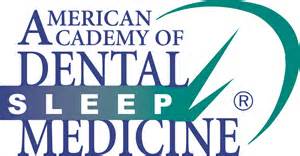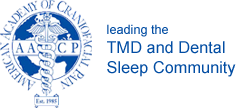Frequently Asked Questions
Will my dental or medical insurance cover the cost of my treatment?
Yes, No, and Maybe.
Benefits for treatment of TMJ disorders and medically diagnosed obstructive sleep apnea are customarily filed under a major medical insurance policy, not a dental plan. However, insurance companies do not cover treatment for snoring only. If your medical insurance specifically excludes coverage for TMJ treatment under your plan, you may have coverage under your dental policy. You will be asked to provide both your dental and medical insurance cards, as well as a valid photo id during your initial visit in order to submit a claim accordingly.
As a result of our sincere desire to base all healthcare decisions on what is best for the patient, not what is best for the insurance company, Dr. Paul Piontkowski and The Washington TMJ & Sleep Therapy Center are not contracted with any insurance carrier. Therefore, all charges must be paid in full at the time of service. As a courtesy, we will assist you with submitting your insurance claims as an out-of-network provider, and you will be reimbursed directly by your insurance company according to your policy.
Because your insurance policy is a contract between you and your insurance carrier, we cannot provide details regarding coverage for your treatment or an estimate of charges that will be reimbursed to you by your insurance company. Our best recommendation is to review your medical and dental insurance policy and contact your insurance carrier directly to determine coverage, pre-authorization requirements, limitations, and exclusions for treatment under your policy. We are not responsible for fees not covered by your insurance company or for matching fees based on their “usual and customary” reimbursement.
Why do I need to pay for care at the time of the visit?
Because Dr. Piontkowski does not participate with your insurance company and is considered an “out-of-network provider,” we do not have access to information about your insurance coverage, rates, co-payments, and deductibles. However, we realize that individuals who have insurance coverage need our assistance in obtaining their covered benefits. As a courtesy, we will submit an insurance claim on your behalf and any necessary documentation to help you receive your maximum insurance benefit. It is our policy to require payment at the time of service in full, and you will be reimbursed by your insurance company according to your policy.
We do not participate in Medicare, and have “opted-out” of this program. If you are a Medicare beneficiary, you will not be entitled to reimbursement from Medicare and will be responsible for all costs for services.
Do you have payment options that can help me decrease my up-front expenses for treatment?
Yes! We accept all major credit cards including VISA, MasterCard, American Express, and Discover Card in order to finance your treatment. Many patients use their health savings (HSA) and flexible saving (FSA) accounts to pay for care provided in our office. We also offer low monthly payment options through CareCredit Services. Apply now to see if you qualify!
What is the role of a dentist in treating sleep disorders?
“Dentists are often the first professional to become aware of a potential problem since they are usually in contact with their patients more frequently than are physicians,” says J. Michael Owen, DDS, FAGD, Academy of General Dentistry (AGD) spokesperson. Dentists will send individuals with symptoms of sleep apnea to a sleep medicine specialist who will assess the patient’s conditions. If a person is diagnosed with the disorder, he or she may return to the dentist to receive sleep apnea treatment in [city], [state].
Can my dentist diagnose sleep apnea?
No. Dentists are not permitted to diagnose sleep apnea. Diagnosis should be done at an accredited sleep center which will require a referral from your physician. Once a diagnosis has been made based on the results of the sleep study, your physician must provide our office with an order/referral documenting the medical necessity of an oral appliance before treatment can begin.
How does oral appliance therapy work for snoring and sleep apnea?
Custom-made oral appliances reposition the tongue and lower jaw forward during sleep to maintain an open airway. Dentists trained in dental sleep medicine as well as temporomandibular joint disorders know how to select, fabricate, fit, and adjust these devices, which look similar to mouth guards, to help you breathe freely during sleep.
Follow-up visits are necessary as well as a secondary sleep study once the appliance has been provided to help determine the effectiveness of the treatment.
If you have additional questions about your treatment, your financial options, or your visit, please contact us today.



